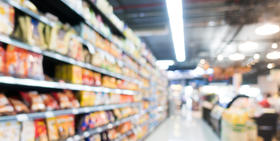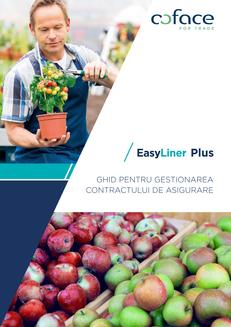The non-specialized wholesale of food, beverages and tobacco

The non-specialized wholesale of food, beverages and tobacco - more than one third of the companies have registered a decrease in their income and 49% a high and above average insolvency risk.
- 42% of the companies in the sector have had a reduction of their net result whereas almost one third (29%) do not obtain profit from the basic activity
- A slight increase in the payment terms to suppliers from 74 to 76 days in the context of the decrease of the operating cycle from 69 to 67 days
- 37% of the companies have the current liquidity below 1
- The financing horizon focused mainly on short term: 85% of the total debts are current
- 40% of the companies in the sector have an insolvency risk above average, 9% a high risk
- Increased polarization in terms of the turnover made by Top 10 players (89.5% in 2016)
In the sector of non-specialized wholesale of food, beverages and tobacco, more than one third of the companies have had a decrease in their income and 40% an insolvency risk above average.
Moreover, the average duration of payment of the debts on short term in 2016 was 76 days, slightly increasing compared to the previous year, namely 74 days while the average duration of debt collection in the sector analyzed decreased to 33 days in 2016 compared to 67 days in 2014. It results that the financial autonomy of the companies in this sector depends on the collection of debts, the more so as the money conversion cycle remains negative, with a level of -9 days in 2016. The negative value is given by a short duration of stock turnover compared to other sectors and by a decreasing average duration of debt collection, which confirms the call for the commercial credit received from the suppliers.
The data of 2,735 companies which submitted the financial data for 2016 and generated a consolidated turnover of RON 23.02 B have been aggregated for the current analysis.
”The financing horizon mainly remains a short term one, 85% of the total debts being current, an increasing percentage, whereas more than half of the market players have an indebtedness degree exceeding 80%. Moreover, 54% of the companies in this sector pay their debts later than their operating cycle would allow them, which creates the premises for financial imbalance”,declared Nicoleta Maruntelu, Senior Financial Analyst, Coface Romania.
During 2016 the companies in the sector analyzed allocated insignificant investments for the extension of fixed assets. After the peak in 2012, fluctuations can be noticed between 2013 - 2016, only 59% making investments in 2016, with a greater Capex/ Depreciation ratio.
The year 2017 also marks the largest number of companies (20) with incidents in the period 2011-2018. It is worth mentioning that two companies have registered 46% of the total number of bank incidents occurred in the past 8 years. Also, if we look at 2016 and 2017 from the quarterly point of view, a fluctuating trend may be noticed, which culminated with the peak in the last quarter of 2017 (141 minor incidents and 507 major incidents).
”The analysis of payment behavior in the sector of non-specialized wholesale of food, beverages and tobacco shows signs that it is getting worse. 2017 has marked the peak in terms of the number of companies with payment incidents among the companies with a turnover higher than EUR 1M, as well as in terms of the total number of incidents. It is worrying that, although the number of companies with debts to the state budget decreased in 2017, probably due to the thresholds introduced by the National Agency for Tax Administration, the value of debts increased very much, being more than 13 times higher than in 2010”declaredAlexandru Fotia, Senior Financial Analyst, Coface Romania.
Consumption trends in the sector
The total monthly average consumption expenditure per household in the last 7 quarters is continuing increasing. On average, the agro food products, the alcoholic and non-alcoholic beverages and tobacco account for 43% of the total expenditure. These two categories of expenditure also had an upward trend in each quarter of 2016 and 2017, respectively.
In terms of the value of imports from the European Union countries for food, beverages and tobacco, a positive trend is stated in the period 2012-2017. Moreover, the value of imports in 2017 compared to 2012 significantly increased by 69%.
Contact
Diana OROS
Marketing and Communications Specialist
42 Pipera St., 6th Floor - 020112
District 2 - Bucharest
ROMANIA
T: +40 37 467 08 86
Email: diana.oros@coface.com



